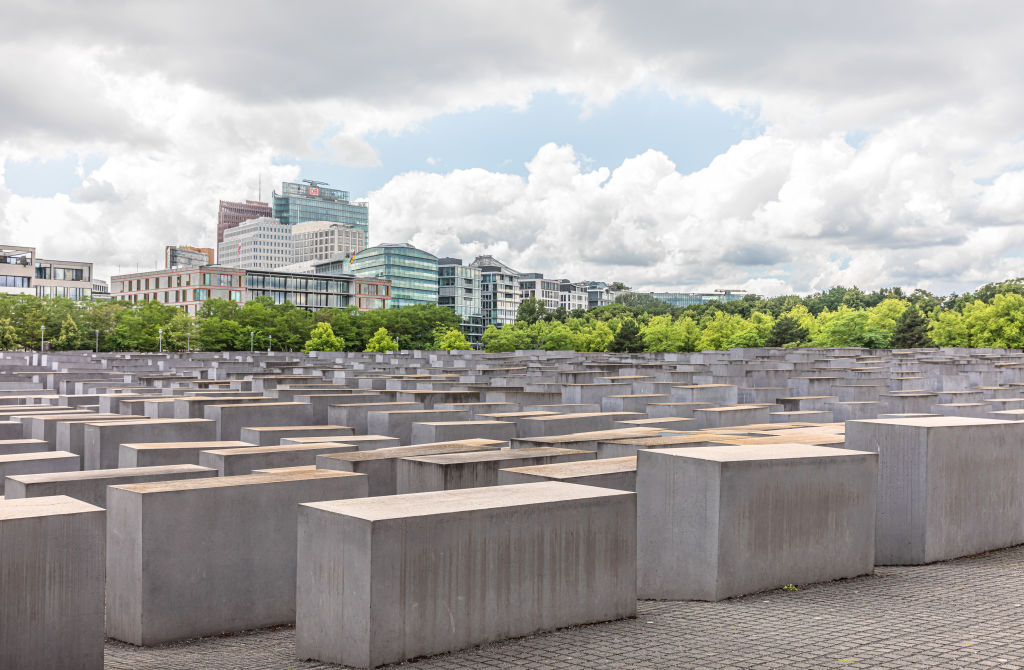Germany is often lauded for the way it confronts its own past. The Holocaust, the murder of six million Jewish men, women and children, has a central place in collective memory as well as in the memorial landscape of the capital Berlin, where a 200,000 sq ft site is dedicated to it. But campaigners and historians have long argued that the Nazis’ murder of an estimated 275,000 people suffering from mental illness and disabilities has received far less public attention. Now one of the last physical traces of this crime is to be destroyed, causing a new row over how modern Germany should deal with its past.
At the centre of the debate is a hospital in the Bavarian city of Erlangen where around 1000 people suffering from mental illness and psychiatric disorders were murdered by the Nazi regime through deliberate starvation and neglect. The 160m-long sandstone building had subterranean ‘hunger wards’. The west wing, where women were held until they succumbed to systematic malnourishment, has already been demolished.
Now the east wing, where two sections for men were located, is also due to be destroyed to make room for a new research facility, the Center for Immunotherapy, Biophysics & Digital Medicine. The entire site belongs to the University of Erlangen–Nuremberg, which says it needs to demolish the old buildings in order to create a space that provides ‘essential links between research and clinical care’. It will only leave a small part of the main building in place.
Such destruction of sites of German guilt does not sit easy within a national framework that prides itself on an unflinching culture of self-reflection. On her first visit to the former Nazi concentration and death camp Auschwitz-Birkenau in 2019, then chancellor Angela Merkel argued that Germans can never forget, that to remember the crimes their forebears committed ‘is part of our national identity.’
Andreas Frewer, Professor for Medical Ethics at the university, has argued that the site should be preserved for the same reasons other sites of mass murder are. ‘Would they demolish a concentration camp?’ he asked in the Süddeutsche Zeitung, one of Germany’s largest newspapers. Frewer also pointed out that the murder of disabled people predated the Holocaust and became a testing ground for its methods such as the use of lethal gas.
When Adolf Hitler began to prepare Germany for war in the summer of 1939, he also began to prepare for the mass murder of the disabled population. In a letter dated to 1 September 1939, he personally instructed senior nazi Philipp Bouhler and his personal physician Karl Brandt to authorise doctors to administer a ‘mercy death’ where patients were ‘deemed incurably sick, after most critical medical examination.’ The first experiments with gassing took place in this context from October 1939.
Church opposition, most notably through the public protestations of the Bishop of Münster, Clemens August Graf von Galen, and other factors, such as the increased publicity of the programme, eventually caused Hitler to suspend the active killing in August 1941. Many of the men and women involved in these killings were later redeployed in the East where they helped set up and run concentration and death camps. Meanwhile the murders of disabled people continued through other means such as starvation, maltreatment and neglect.
In light of these horrific historical facts, Frewer is not the only one who feels adequate provision should be made to remember these crimes and their victims. The German Auschwitz Committee has also argued that as ‘the only building that still exists in which during the Nazi era the murder of patients took place’, it should ‘under no circumstances be allowed to be demolished.’
But the plea of the Auschwitz Committee was rejected by the university and the Bavarian government, which said that it ‘would not consider’ any alteration of the demolition plans because federal funding was attached to them. It added that a compromise solution had been found to create an ‘appropriate memorial site.’
Frewer and other campaigners are unhappy with the compromise solution in which the middle part of the long building remains standing while the wings with their former hunger wards are destroyed. The central part was where doctors and other personnel involved in the killings had their offices. Frewer argues this means the spaces of the perpetrators remain, while those of the victims are extinguished.
The debate around this last remaining physical structure connected to the murder of disabled people might have been less heated had other sites not undergone similar eradication. At Tiergartenstraße 4 in Berlin, the former administrative headquarters of the Nazi ‘euthanasia’ programme, there is now a bus terminal and the Berliner Philharmonie. After complaints from campaign groups at the lack of commemoration, a piece of public art that had originally been designed for a different purpose, was dedicated to the memory of the victims and installed on the site. It was only in 2014 that a more systematic approach was taken with a memorial that was especially designed for its purpose and complemented by information plaques.
There are now few physical traces of Nazi crimes on German soil. While the state does much to invest in education as well as the preservation of concentration and death camps in Germany and in other countries, these sites tend to be far away and out of sight. The murder of disabled people happened in places that were then as now in the midst of German life. It seems Germany has not yet found a consensus on how these uncomfortable truths are best remembered. But remember them it must.







Comments